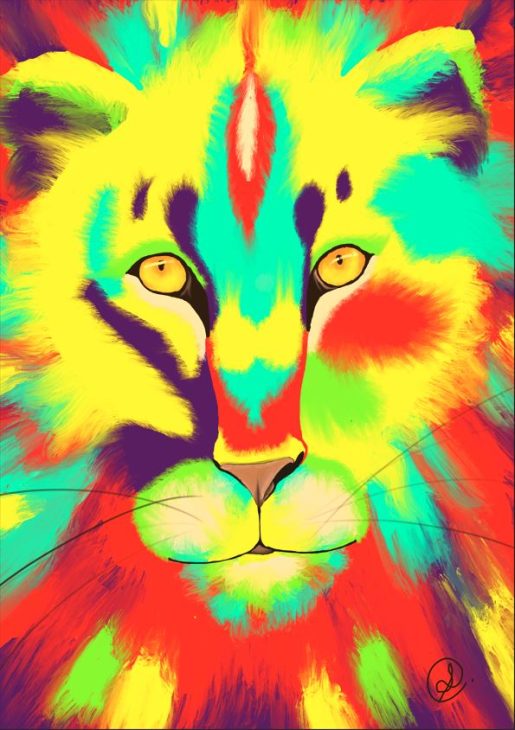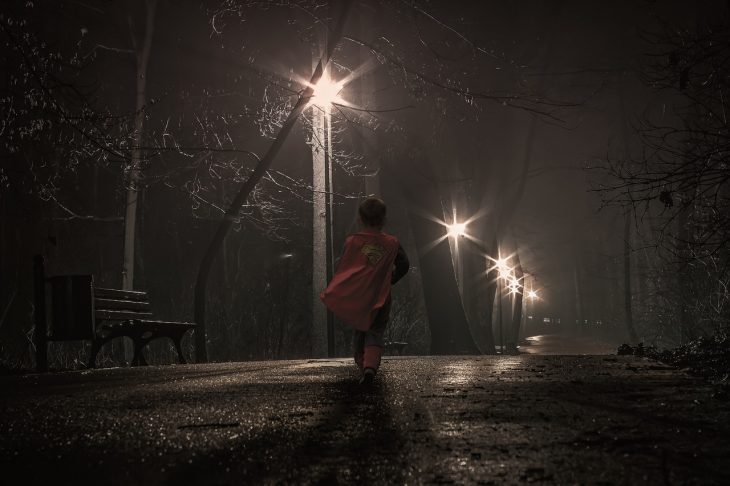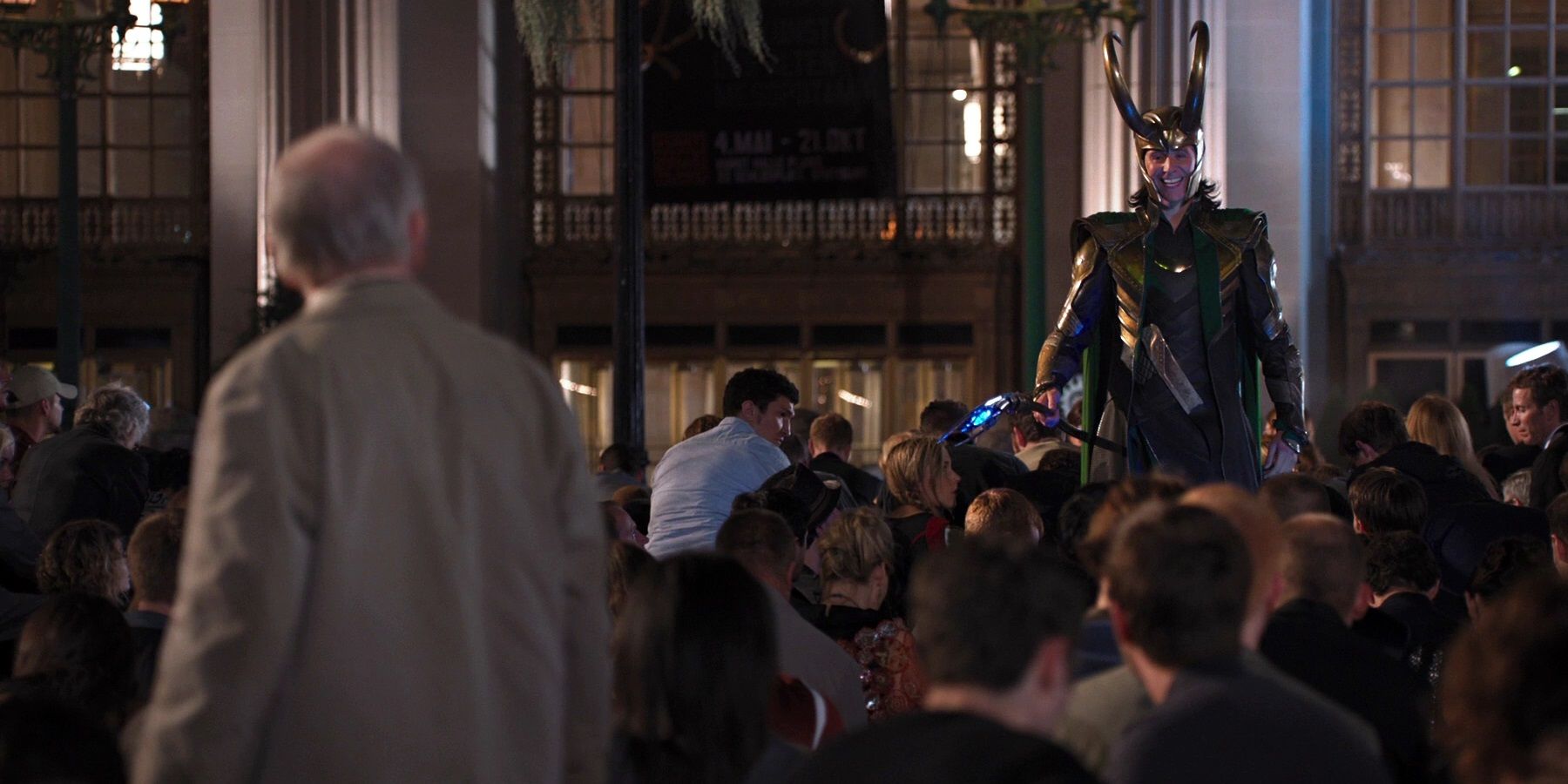Courage Does Not Always Roar

Good afterevenmorn!
As I’m prepping for the release of the first part of my free serial story on my person blog (11 days!), I’m thinking a great deal about the characters I tend to find most interesting and therefore tend to write the most about — those poor traumatized souls. It’s not just that they’re imperfect (perfection is horrendously dull, I find), or even just that they’re deeply flawed. They’re hurting and more often than not, they’re acting from that place of hurt. These are the characters I find more fascinating than others both to read and write about. You see, there are two ways they could go. They could either be a hero or a villain, and the smallest slip would begin the plunge into villainy, while achieving heroic heights is always an intense struggle. Reading characters that are teetering on that knife edge is always a good time for me.
Sometimes I worry about my mental state.
In any case, just as watching a character teeter on the edge creates a believable, often sympathetic villain with whom the reader might even agree should they fall, watching a character manage to pull themselves up from the darkness that threatens to turn their hearts cold and devour their souls, it feels to me all the more remarkable, all the more heroic. Far more heroic, for instance, than a character born to privilege or without struggle who does good deeds or wins the day. Are they good? Yes, certainly. Are they heroes? Of course. But I find their stories achingly empty of substance. Far better for my heart and head to follow the beleaguered and bedraggled cub and witness their stubborn growth into a powerful, respected and good champion. Their elevation to hero feels more earned to me this way.

It’s easy, I think, to fall into the trap of thinking a hero is brash and loud, who bellows their bravery from the front lines at the charging enemy. Certainly, many heroes have been written that way. For a time, I think, that’s what heroes were. They were the bright shining beacon of bravado behind which everyone gathered. They were the ones who rallied the troops and won the day. Often that resulted in heroes who won the day, but were otherwise awful people; unsympathetic to the plight of ordinary folk, charming only to achieve a selfish end, or misogynistic, or vacuous, or vain, or narcissistic, and quite often a combination of two or more of these traits. And why wouldn’t they be? They’re the golden child and always have been. I frequently want to punch those characters in the face, and more often than not end up rooting for the villain. I often feel like people in real life equate this sort of brash, loud bravado with heroism. Why shouldn’t they? It was so frequently portrayed that way.
But courage does not always roar like a lion.
Courage is often found in smaller acts; the small act of kindness in a cruel world, or cleaving to love in a maelstrom of hate, or daring to dig for truth when all the world is drowning in lies; and is happy to be so. It could be even simpler than that. Sometimes courage is waking up and rising from the bed. Sometimes, it is staring down into the abyss and deliberately turning away from it. Sometimes it is in the act of walking across a floor to stand before or beside another. I have found that the greatest, most profound acts of courage are quieter than we’re perhaps used to seeing or reading about in media. It is these quieter acts that I find inherently more intriguing than any of the other markers of bravery or heroism that abound in legend and therefore in our fiction.

When creating characters, or falling in love with someone else’s creation, it is the hero that would rather be anything but that usually wins my heart. Give me the quiet child who tended wounded animals, give me the sibling who would burn the world for their family and no other reason, give me the wounded, the hurting, those who could easily slide into villainy if their hearts did not bleed. Give me the hero for whom heroism does not come easily.
Because here’s the sad truth about heroism — it isn’t easy. That why we call people who manage it heroes.
Easier by far is the propensity to not rock the boat. To not stand out from the crowd. To be a bystander. Easier by far to simply let evil take root and to wash along with its tide. After all, so few people are actively being villainous. They’re just people, trying to go about their lives in relative peace; and by their inaction make of themselves pawns of villainy. It is the heroes who recognise the cost of that ‘peace,’ who can see the injustice in it, and who stand up amongst the few to combat it. They do so often full of doubt, against overwhelming odds, and more often than not make themselves pariahs in their worlds. It is hard to stand up when bowing down ensures relative comfort; even if that comfort is rooted in injustice and evil.

The ease of simply sliding down the slope into villainy is what makes a heroic rise so remarkable; more remarkable than following the journey of a hero who is called one simply for winning the day in a battle. This is why, for example, I think Marvel did such a good job with Captain America – a hero who could otherwise have fallen flat. Indeed, I was well prepared to dismiss him outright. Oh, a super soldier winning the day? How dull. The fact that he became a super soldier is not what made him a hero, however. He was a hero before that. His manufactured strength, speed and agility enabled him to be victorious; but it was his softness in a hard world that made him a hero. He saw the worst of the world. He could have easily slid into despair, cynicism, and, therefore, inaction (if not outright villainy). It was not bravado, but genuine courage that made him a hero.
After all, what use is all the strength in the world, or kindness, or love, if one lacks the courage to act upon it?
The best heroes, for me, are those who could very easily have — due to environment, circumstance, personal trauma or character trait – become the villain, but due to some other influence (or even their own dogged determination) instead rise above. Their stories are always infinitely more interesting to me; both to read and write. Certainly, there is a place for the shining example; the bright, flawless leader at the front of the army. But those characters will never have my heart the way the quiet mouse who at last picks up a sword to defend all it holds dear will.
When S.M. Carrière isn’t brutally killing your favourite characters, she spends her time teaching martial arts, live streaming video games, occasionally teaching at the University of Ottawa, and cuddling her cat. In other words, she spends her time teaching others to kill, streaming her digital kills, teaching about historical death, and cuddling a furry murderer. Her most recent works are Skylark, Daughters of Britain and Human.